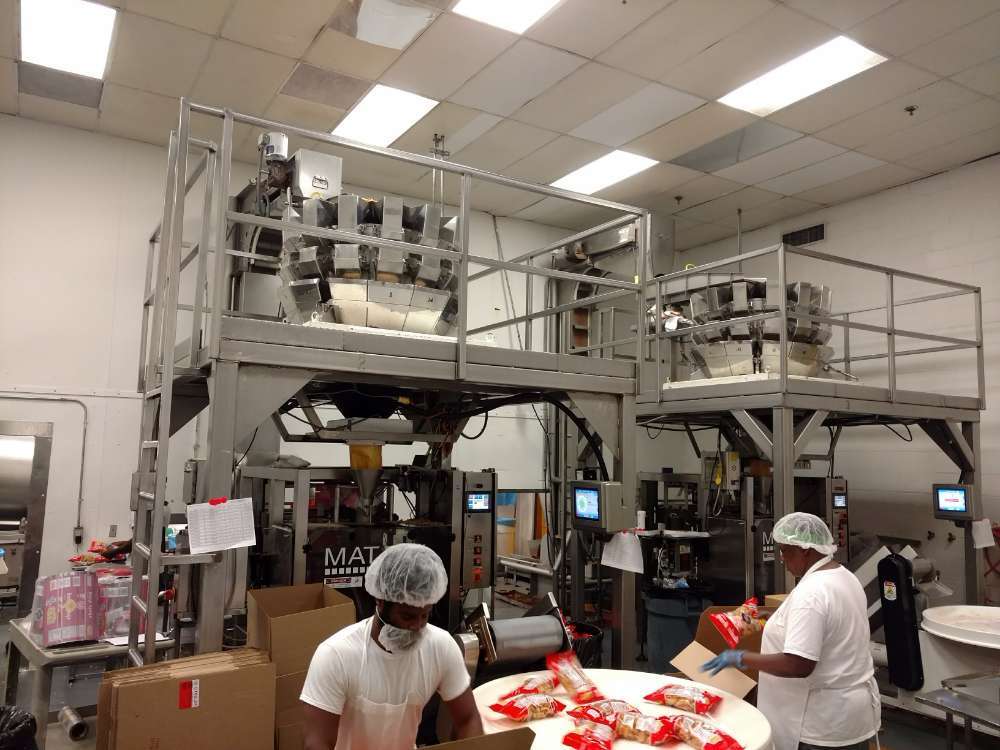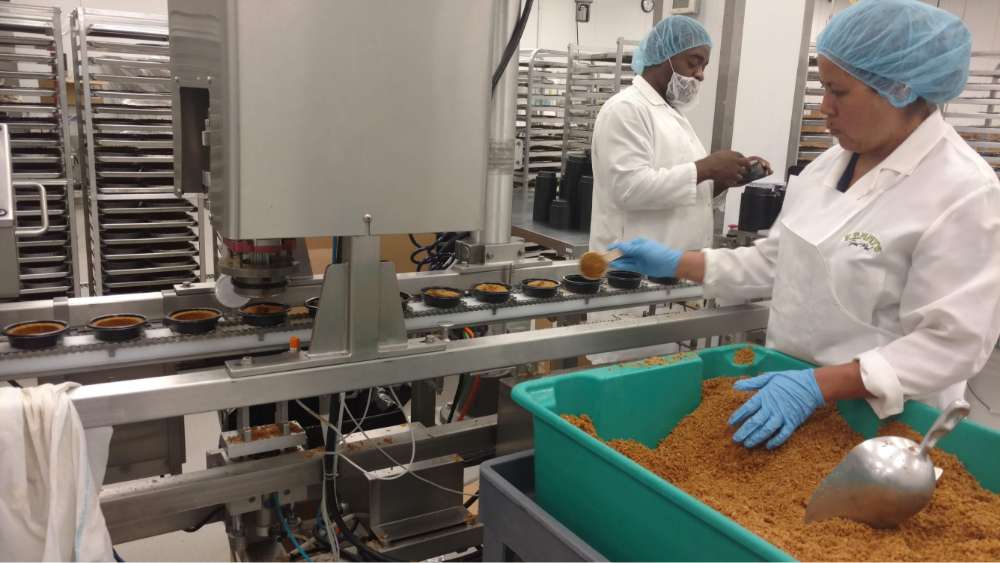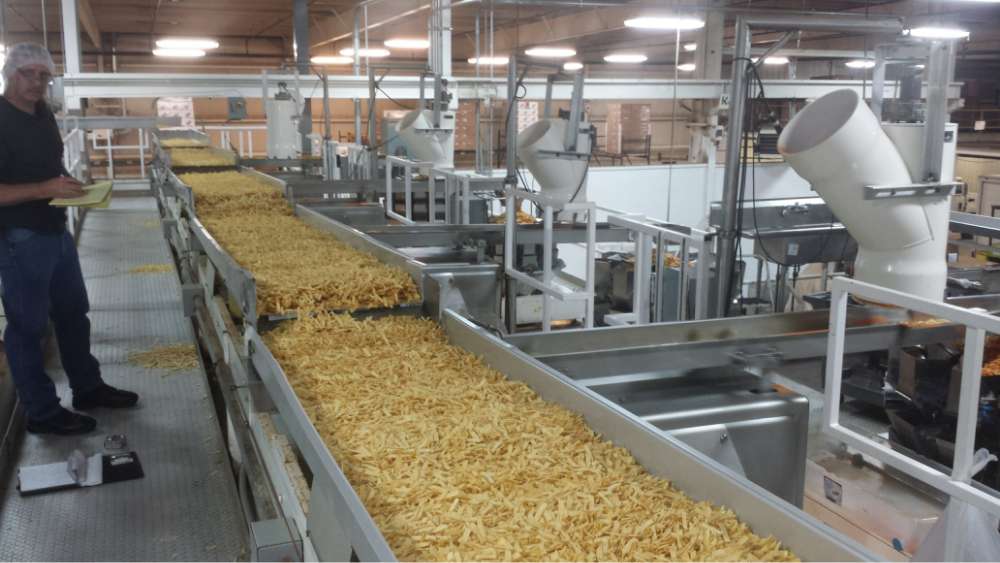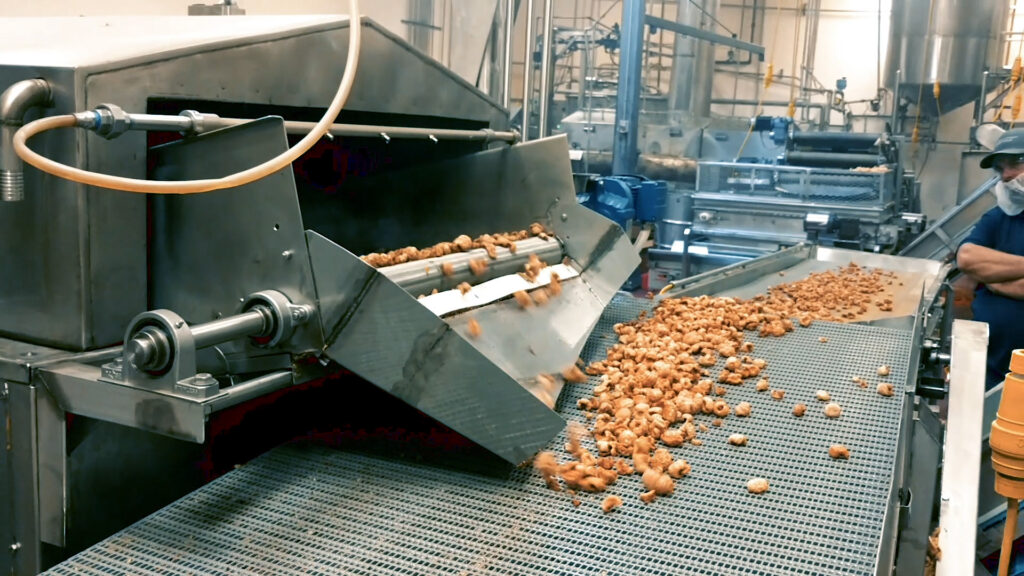
The food processing industry is one of the cornerstones of modern commerce. This sector delivers the food and beverages that support a range of lifestyles and dietary requirements. This gives consumers access to exciting products when they shop.
Industrial food processing equipment is crucial here. These equipment solutions ensure that food companies can bring products to market swiftly and less expensively. Then they can pass these savings on to customers at the point of sale.
Industrial equipment also helps to achieve uniformity. With this, brands can meet health and safety requirements and guarantee high levels of quality.
In the modern age, we can go beyond this. Industrial automation is improving food manufacturing, increasing reliability, improving profits, and exceeding consumer expectations. Read on to discover more — or reach out to our team and let’s chat about what PEC can do for you.

What are the advantages of automated technologies in the food production space? How can your business benefit from industrial automation for food processing applications? This is what automated equipment can help you achieve:
1
Food companies and manufacturers are held to an incredibly high standard regarding product ingredients, recipes, and preparation methods.
Customers need to know that the information they read on food packaging is accurate and complete. This means achieving ingredient and recipe uniformity on every product. Standardization also has an impact on product quality, and your customers are going to notice this.
Automation in the food supply chain eliminates potential errors. Products are developed and manufactured according to strict production methods — repeated time and time again, even as production volumes increase.
2
Automating repair actions within the food processing chain also enables you to guarantee the health and safety of your products. When errors and human contact are removed, it’s much easier to guarantee high levels of health and safety from your products. This means you can meet regulatory compliance standards every time.
But automation does more than safeguard the health and safety of your products. It also supports better H&S in your workplace too.
By automating potentially risky operations, human personnel are kept separate from the production process. This reduces the potential for workplace accidents or protocol violations.
3
The food processing industry relies on generating sales revenue while limiting production expenses. When there are mistakes within the production line, costs quickly get out of control. Defective batches need to be remade, while inefficient production processes inhibit the entire supply chain. This makes it challenging to keep meeting food plant demand in a cost-effective and controlled manner.
The food processing industry achieves a far better way of doing things with automated processes and controls. Errors and do-overs are removed, while a well-designed automated production line achieves significantly improved efficiency.
This enables businesses in the food and beverage industry to effectively increase production without having to make significant changes to operations. They can either overhaul their production methods or negotiate new relationships in the supply chain.
4
When customer demand changes, food processing equipment, and businesses need to respond to this change. This is made easy with industrial automation in the food processing sector. With significantly improved efficiency, your business can meet evolving customer expectations.
The data-driven aspect of automation is also important. This data allows you to spot customer trends ahead of time. This makes pre-emptive changes to product lines and gets a head start on your competitors.

What kind of food processing equipment can be automated? How does automation fit into the production line in this industry? There are many potential applications for automation in this field. We’ve examined some of the most common below.
1
Cooking and preparation — or similar processes — transform ingredients into a finished food or beverage product. These processes can be automated to achieve better standardization and repeatable results.
2
The finished form and aesthetic of the product is an important aspect of production. Automated equipment solutions are ideal for achieving highly precise cuts and forms with little to no variation.
3
Blending and mixing require specialized pieces of equipment, as well as accurate measuring of ingredients and ratios. All of this can be automated, removing the potential for error and achieving high product quality without fail.
4
Food and beverage products need to be loaded into containers ready for the customer. This is another example of a process where accuracy is vital, and automation is highly valuable in achieving this.
5
The primary packaging of the product is critical to branding as well as compliance. This packaging material needs to reflect the look and personality of your business while providing mandatory health information to the customer.
Internal packaging also needs to be produced and sealed according to detailed specifications. Automated packaging line solutions assist with the development and manufacture of these materials.
6
Materials and ingredients need to be transported around the plant efficiently and safely. Automated software systems integrated with picking and handling equipment make this possible. Materials are handled correctly, reducing wastage and increasing profitability.
7
Effective automation depends upon reliable data. Analytic and reporting tools provide this solid and reliable foundation. This gives automated systems the data they need to perform correctly. It also offers human personnel valuable insight into food and beverage manufacturing performance.
8
Regulatory compliance is a constant consideration in this industry. Automated solutions are programmed with checks and failsafes, ensuring that each batch and product meets strict health and safety compliance requirements.
Automation also ensures that health and safety protocols are followed during production. This protects human team members and upholds high standards of safety across the plant.

At PEC, we work closely with our clients to create custom automated systems that exceed their needs and expectations. Our team has a strong track record of success in the food processing industry. From industrial maintenance to millwright and rigging services, and everything in between, our team is well-versed in the needs of our clients.
We have the expertise and experience needed to deliver on your project. While all projects are different, they all begin similarly — with a consultation. Reach out today, and let’s discuss how PEC’s tailored automation solutions can help you and your business.
Diverse Industries, One Trusted Partner
Safety means more than compliance; it’s our covenant with you.







Whether you’re coordinating your next project or proactively planning your plant maintenance, there’s no better time than right now to contact us.